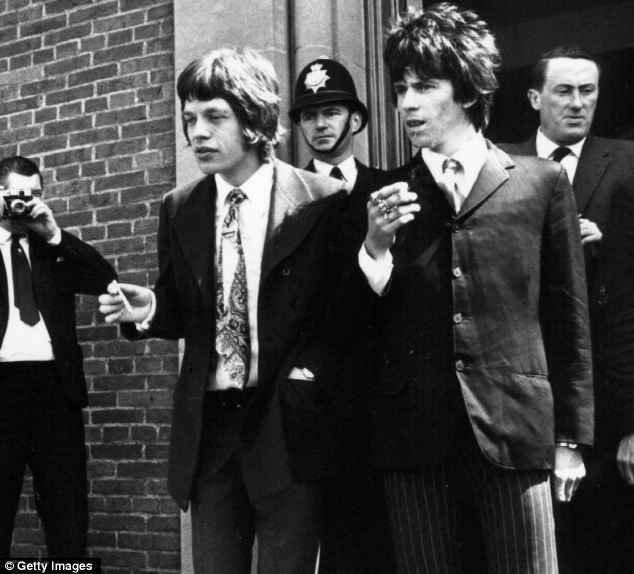Recovers son
A New York law emancipates all slaves but Truth’s former master, Dumont, had already sold Peter, Isabella’s five-year old child, into slavery in Alabama. Truth sues in court, with the help of the Wageners, and recovers her son. She becomes the first black woman, after several months of litigation, to win such a case against a white man.
Arrested for voting
Anthony, three of her sisters, and other women are arrested in Rochester for voting. She is arraigned with other women and the election inspectors who had allowed her to vote in Rochester Common Council chambers. She refuses to pay bail and applies for habeas corpus, but her lawyer pays the bail, keeping the case from the Supreme Court. She is indicted in Albany, and the Rochester District Attorney asks for a change of venue because a jury might be prejudiced in her favor. At her trial in Canandaigua, the judge instructs the jury to find her guilty without discussion. He fines her $100 and makes her pay courtroom fees, but does not imprison her when she refuses to pay, therefore denying her the chance to appeal.
Grand jury indicts Anthony for voting
A grand jury indicts Anthony for voting. She is released on bail and tours the area around Rochester delivering speeches:
It was we, the people; not we, the white male citizens; nor yet we, the male citizens; but we, the whole people, who formed the Union. And it is a downright mockery to talk to women of their enjoyment of the blessings of liberty while they are denied the use of the only means of securing them provided by this democratic-republican government — the ballot.
Fined $100
Anthony’s lawyer argues at her trial that she did not violate the Enforcement Act, which states that a person cannot knowingly vote illegally because she believed she had the right to vote. Supported by recent Supreme Court cases, the judge finds that the 14th Amendment does not guarantee women the right to vote. He rules that Anthony was aware that she could not legally vote, and fines her $100 plus court costs. She refuses to pay the fine, and the authorities do not try very hard to collect it.
Sent to concentration camp
After spending three days in Vienna, Bettelheim is transferred to Dachau concentration camp for four months and then to Buchenwald. His wife goes to the United States. Later Bettelheim deposes in a document signed L-73, saying that he was able to survive partly because he could understand the mental processes of the SS guards and officers.
I worked in at least 20 different labor groups whose number varied from 20 or 30 all the way up to a few hundreds. I slept in five different barracks, in each of which 200 or 300 prisoners lived. In this way I came to know personally at least 600 prisoners at Dachau (out of approximately 6,000) and at least 900 at Buchenwald (out of approximately 8,000). Although older prisoners of the same category lived together in barracks, all categories were mixed at work so that I was able to contact and interview prisoners of all types. The main different categories were : political prisoners; “work-shy” prisoners, that is, persons who did not agree to work wherever the government wanted them to work, or who had changed working places to get higher wages, etc.; former members of the French Foreign Legion and spies; Jehovah’s Witnesses and other conscientious objectors; Jews; criminals; and other groups, e.g. former members of such suppressed Nazi groups as the followers of Roehm who were still alive. I was thus afforded an opportunity of interviewing all different groups and in this way secured an adequate sampling. was able to find only two other persons whose intelligence and training qualified them to participate in my investigation. These individuals spoke to several hundred prisoners. Every day during the morning count of the prisoners, while waiting for assignment to labor groups, reports were exchanged, and theories discussed. These talks proved very helpful in clarifying mistakes due to taking a one-sided viewpoint.
Influential friends in America ask the State Department to pressure the German authorities for his release and he is set free in April 1939.
Bans racial segregation in public schools
In a major civil rights victory, the U.S. Supreme Court hands down an unanimous decision in Brown v. Board of Education of Topeka, ruling that racial segregation in public educational facilities is unconstitutional. The decision deals with Linda Brown, a young African American girl who had been denied admission to her local elementary school in Topeka, Kansas, because of the color of her skin.
Arrested
Zuma is arrested with 45 other members of Spear of the nation (Umkhonto we Sizwe) in Zeerus, North West Province, South Africa.
10 year sentence for conspiracy
Zuma is convicted of conspiracy to overthrow the South African government and sentenced to ten year’s imprisonment, which he serves on Robben Island with Nelson Mandela and other notable ANC leaders. Whilst imprisoned, Zuma serves as a referee for prisoners’ association football games.
Arrested
Mugabe is arrested and sentenced to ten years imprisonment for opposing white-minority rule.
Sues Georgia legislature
On three occasions, the white leaders of the Georgia legislature prevent Bond from taking his seat. The legislature claims it has the right to determine the qualifications of its members. Bond files suit, saying:
If they bar me again, I’ll sue them again.
Rules to seat Bond
The United States Supreme Court rules 9–0 in the case of Bond v. Floyd (385 U.S. 116) that the Georgia House of Representatives had denied Bond his freedom of speech and was required to seat him. He serves four terms in the Georgia House, where he organizes the Georgia Legislative Black Caucus.
Court appearance
 Jagger and Richards appear before magistrates in Chichester, West Sussex, charged with drug offences. Jagger, 24, is accused of illegally possessing four tablets containing amphetamine sulphate and methylamphetamine hydrochloride. Richards, also 24, is charged with allowing his house to be used for the purpose of smoking cannabis. Both plead not guilty and are released on bail to appear for trial at West Sussex Quarter Sessions on 22 June.
Jagger and Richards appear before magistrates in Chichester, West Sussex, charged with drug offences. Jagger, 24, is accused of illegally possessing four tablets containing amphetamine sulphate and methylamphetamine hydrochloride. Richards, also 24, is charged with allowing his house to be used for the purpose of smoking cannabis. Both plead not guilty and are released on bail to appear for trial at West Sussex Quarter Sessions on 22 June.
Racial discrimination lawsuit
The Justice Department sues the Trump Management Corporation for alleged racial discrimination in 39 of its buildings across New York. The Government says Trump Management has refused to rent or negotiate rentals and required different rental terms and conditions, because of race or color, as well as misrepresenting to blacks that apartments were not available. Donald Trump denies the charges:
They are absolutely ridiculous. We have never discriminated, and we never would. There have been a number of local actions against us, and we have won them all…We proved in court that we did not discriminate.
Father jailed for murder
Carter’s father, who has remarried, is jailed for 12 years for shooting and killing his wife’s brother after an argument.
That taught me about consequences at a really, really young age.
Despite this, his father and step-mother stay together, and after prison his father rebuilds his life.
[He is] one of my real heroes.
Arson attempt
Sometime in the 1980s, Houser tries to hire a man to set fire to the law office of John Swearingen, an attorney representing the owners of pornographic theaters, which Houser detested. However, the man Houser tries to hire is a police informant who turns Houser in. According to Swearingen, Houser reportedly told the prospective arsonist to be sure not to kill anyone — except Swearingen. allegedly saying:
I don’t mind if he dies.
Swearingen agrees to not to press charges against Houser if the family gets him mental health treatment.
NYC tenant intimidation suit
The city of New York sues Trump over alleged intimidation and harassment of tenants at his 15-story building at 100 Central Park South, which overlooks Central Park. Trump bought the building in 1981 with the intention of tearing it and the adjacent Barbizon Plaza (which he also owns) and replacing them with another of his mega-luxury towers. The suit says Trump and his agents have tried to force out the 60 or more tenants by threats of imminent demolition, spurious litigation, drastic decreases in essential services, persistent delays in repairing defective conditions, and instructing employees to obtain information about the private lives and sex habits of the tenants.
The defendants have harassed daily the occupants of said units…wrongful acts and omissions continue to date.
Trump claims he is the victim of wily, wealthy millionaire-tenants who are trying to extract exorbitant buyout money or other financial concessions from him.
Trump is not going to be harassed.
Arrest
Bond is arrested outside the South African Embassy in Washington D.C. for protesting apartheid.
Pays $750,000 to settle FTC antitrust suit
Trump agrees to pay a $750,000 civil penalty to settle an antitrust lawsuit brought by the FTC, alleging his 1986 stock purchase of Holiday Corp. and Bally Manufacturing Corp, as part of a takeover bid, violated the notification procedures required by the Hart-Scott-Rodino Act. The law requires that buyers must notify the government before purchasing more than $15 million worth of voting stock in a company and wait 30 days before completing the transaction.
[I decided to settle the case] to avoid protracted litigation within the federal government over a highly technical disagreement between the FTC and the business community…I firmly believe that I was in full compliance with the Hart- Scott-Rodino Act reporting restrictions…The most respected lawyers in the business’ [told me the law exempted the purchase of stock options]. Bear, Stearns also gave me the same assurance. I assume Bear, Stearns will reimburse me for the expense.
Indicted
Guzman is indicted on drug smuggling and money laundering charges as a result of an investigation in the Pocono mountains of northeastern Pennsylvania.
Helicopter crash damages trial starts
In U.S. District Court in Camden, Trump’s lawyers argue that Agusta, the manufacturer of a helicopter that crashed Oct. 10, 1989, killing three executives of his New Jersey hotel casino business, are responsible for damages to the business. The suit alleges that the manufacturer knew that the rotors were defective, failed to take even minimal steps to correct the problem and thus defrauded Trump through wanton and outrageous misconduct. Trump says the crash caused his casinos to lose revenue, increased operating costs, including the price of hiring new executives. The heirs of the victims received about $1.6 million from their employment contracts with Trump. While Judge Berry expresses skepticism about the case, Trump’s lawyers cite a 1950 New Jersey Supreme Court decision that reads:
of course an employer…is free to maintain any (lawsuit) against the seller of an article for breach of a warranty of its fitness
Augusta’s attorney:
[L]ook past Trump’s claim of economic damages at what this really is . . . a wrongful-death action
Berry gives the lawyers a week to prepare further arguments.
